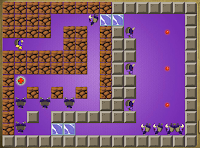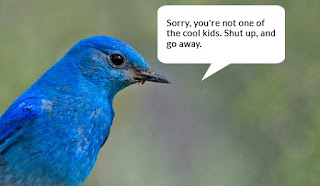Gamestar + Gamekit Beta = Awesome

21st Century Skills... why game design? I've been using game design for the last couple of years to increase the application of " 21st Century Skills " in my class. The actual curriculum of my course is focused on the ISTE NETS , my official standards, and the Pennsylvania Computer Information Technology Standards for grades 6-8 . My goal in teaching and assessing those skills, though, is to provide a context including as much STE[A]M focused content as possible and as many opportunities as I can for students to practice the 21st Century Skills . Game Design is concerned with studying the concepts behind the basic elements of a game, and how the balance of fun and challenge in games creates flow. It is also concerned with the iteration feedback loop and how games are a complex system designed around creating a satisfying user experience. Game design is a great jumping off point for introducing STEAM (Science, Technology, Engineering, Art and Math) learning thr








